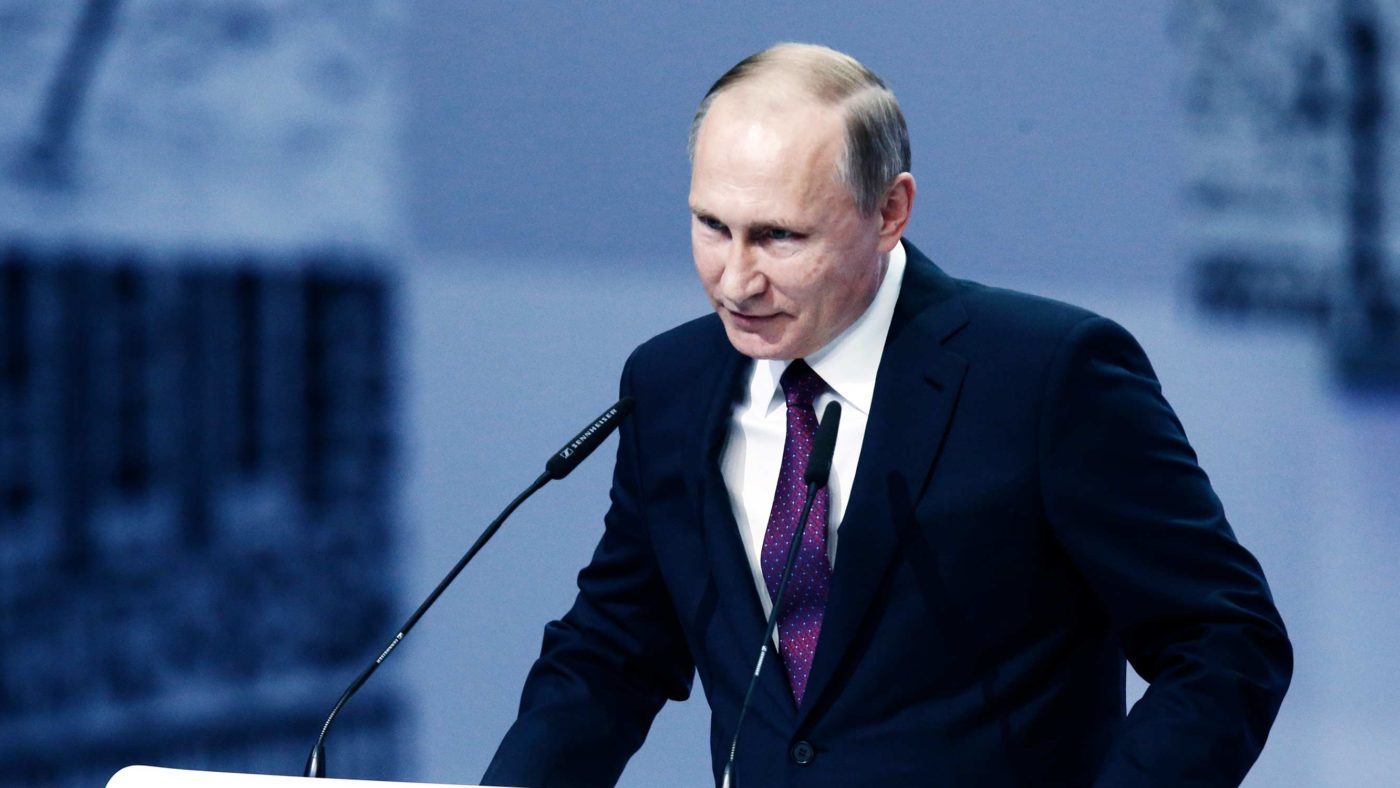The West, as we have known it for the past 60 years, died this week.
On most issues — security, trade, climate change — Donald Trump has nothing in common with the people who run the other advanced industrialised countries.
We are trying to expand and deepen the global trading system. He wants to clog it up with trade wars. We want multilateral deals to manage the costs of climate change and curbing carbon emissions. He thinks multilateralism is for wimps.
Worst of all, he doesn’t want to lead it. In his bleak, zero-sum view of the world (remarkably similar to Vladimir Putin’s, it should be noted), there is no room for abstract values, let alone reciprocal loyalties based on past sacrifice and future hopes.
He sees the world from a business point of view. You have competitors, suppliers and customers. Your job is to thrash the first by screwing the best deal possible from the other two. The more money you make, the better you are doing.
That is actually a questionable way to run a business. It is a terrible way to run a superpower.
True, America has always been a flickering beacon of Western values. It fought dirty during the cold war (cosying up to dictators and fascists in Europe, and committing far worse sins in Africa, Asia and Latin America). At home, America’s record on race, the death penalty and the use of money in politics makes many flinch.
But at least the ideas that underpin America have been inspirational. Mr Trump does not even pretend to champion them. He celebrates lawlessness, torture, greed and the naked exercise of power. Even if his administration does not practise the revolting creeds he preaches, his remarks and personality will stoke anti-Americanism.
Equally awful is his approach to allies. He has publicly questioned the most sacred principle of collective defence: that an attack on an American ally is an attack on America itself. That kept the peace in Europe from the Berlin airlift in 1948 to the fall of the Wall. It also, mostly (sorry Ukraine, sorry Georgia) kept a resurgent Russia under Vladimir Putin at bay.
Under a Trump presidency, we can no longer be sure of that. He will first tot up allies’ cash contributions. Then he will decide whether to defend them.
For the beleaguered frontline states, especially Estonia, Latvia and Lithuania, the end of the West is an existential question. But all of Europe must worry too.
After 25 years of shrinking defence budgets, complacency about security, and bouts of self-indulgent, paranoid anti-Americanism (how’s that Moscow winter, Mr Snowden?) all European countries—in and out of NATO, in and out of the European Union—need to realise that the game is up.
We cannot rely on America for the next four years, and perhaps never again. If we want our safe, comfortable, prosperous life to continue, we need to get used to spending real money, coping with real threats, making real sacrifices and taking real risks.
Start on the frontline. We need to show Russia that we in Europe stand behind embattled, bleeding Ukraine. That does not mean propping up the oligarchic and incompetent administration of President Petro Poroshenko.
It does mean engaging deeply with the biggest and most important frontline state at every level: offering visa free travel; promoting trade, investment and educational exchanges; and—most of all—providing the weapons that Ukrainians need to defend themselves.
We should back that up with real sanctions. America may have the biggest financial muscles, but Europe has plenty too. Russia uses our financial centres—in Cyprus, Frankfurt, London, Luxembourg, Riga, Vienna and elsewhere—to launder money. We can make that costlier. We can be tougher on visas.
The Russian elite, and their spouses, siblings and parents, like to frolic, shop, study and get medical care in Europe. Let’s show there is a price for their anti-Westernism, for their bullying of neighbours, and abuse of their own people.
As well as mounting guard against Russian “hybrid war”(propaganda, spies, dirty tricks and mind-games) we also need to start the long slow business of getting our defence sorted out. Europe’s two nuclear powers, Britain and France, have a particular burden here (thank goodness we are renewing Trident).
Germany, as the continent’s economic hegemon, needs to start taking an even greater political and security lead. Angela Merkel is now, de facto, the leader of the free world. We need to support her.
We are not short of money here. It is worth remembering that the Nordic five (Denmark, Finland, Iceland, Norway and Sweden) plus the Baltic three and Poland have a bigger GDP than Russia. Even their defence spending, combined, is about half Russia’s. And the Kremlin needs to worry about all its frontiers. The countries of north-eastern Europe need to worry about only one enemy.
Although we should assume the worst in terms of American disengagement, we should also seek to mitigate it. We can try to educate the administration about why allies matter. Isolationist rhetoric played well in the campaign. It won’t solve problems that need other countries’ cooperation.
We can remind Mr Trump that five European allies (Estonia, Britain, Greece, Poland and Turkey) already meet NATO’s threshold of spending 2 per cent of GDP, that others will hit the target soon, and that almost all the European allies, particularly the frontline states, readily came to America’s aid in Afghanistan and Iraq.
The biggest and trickiest task is dealing with the roots of the problem. Trump-supporting Americans share the same feelings of alienation, grievance and justified scorn that made British voters opt for Brexit. These sentiments fuel anti-systemic (often pro-Kremlin) parties in other countries too.
Across Europe, the elite — decisionmakers and (hands up) commentators — must ask themselves: “Why don’t people trust us?” Answering that question will not only head off the danger of more Trump-like victories in Europe. It will also make us better able to withstand the threat we face from Russia.


